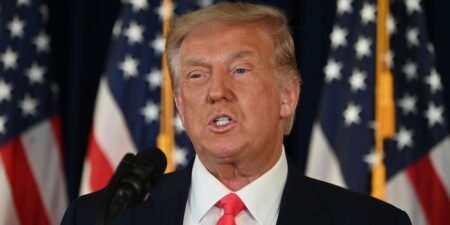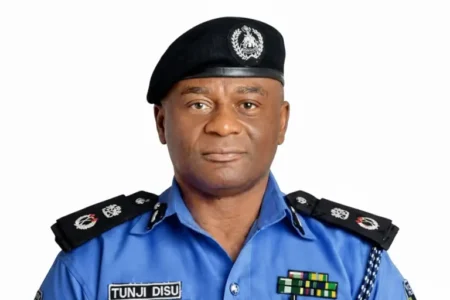Former Vice President of Nigeria, Professor Yemi Osinbajo, has urged African journalists to play a crucial role in framing the climate crisis narrative and championing the continent’s transition to a green, climate-positive growth model.
In a groundbreaking virtual keynote address delivered at the pioneering Climate Africa Warsha, Prof. Osinbajo, the Global Advisor of the Global Energy Alliance for People and Planet (GEAPP), called on African journalists to take the lead in driving revolution for Africa’s transition to renewable energy.
The event, organized by GEAPP, on Friday, aimed to elevate the discourse on renewable energy and climate change journalism across the continent.
Expressing his gratitude for the opportunity to address the distinguished audience, Prof. Osinbajo commenced by defining the Swahili term “Warsha” as a workshop or seminar for advanced learning, emphasising the importance of the occasion on World Press Freedom Day.
He remarked, “I am particularly honoured to have been asked to speak to this distinguished audience of journalists and communications experts at this GEAPP Climate Africa Warsha. And, if like me, you were wondering what a Warsha is, Jabri Ibrahim has explained that it is a Swahili word for workshop or seminar for advanced or specialised learning.”
Acknowledging GEAPP’s pivotal role in championing green energy initiatives, Prof. Osinbajo commended the organisation for catalysing transformative change through collaborations with governments, the private sector, and communities across Africa.
He stated, “By bringing together governments, the private sector, and communities, GEAPP is catalysing transformative change that promises prosperity, innovation, and sustainable livelihoods.”
Highlighting the historical role of the press in Africa’s struggles for freedom and justice, Prof. Osinbajo called upon journalists to prioritise coverage of the climate crisis.
He emphasised, “The press in Africa has been that one institution that had been in the forefront of every significant battle that the peoples of our continent have fought, whether it is decolonization, human rights, civil and political rights or epidemics, it has been at the barricades, especially because its own origins and raison d’tre are grounded in freedom and egalitarianism.”
Speaking to the challenges faced by Africa in combating the climate crisis while addressing energy poverty, Prof. Osinbajo emphasised the need for a just, equitable, and inclusive energy transition.
He stated, “Africa is the least emitter of dangerous gases but Africa is warming faster than any other continent, we are experiencing the extreme consequences of climate change, flooding, drought, excessive heat and rising sea levels, and we are probably the least equipped planet to deal with the devastation of the crisis.”
Prof. Osinbajo highlighted Africa’s dilemma of needing to develop its economy while also addressing the climate crisis. He emphasized that if Africa were to develop using the same carbon-intensive methods as wealthier nations, it would be impossible for the world to achieve net-zero emissions by 2050.
He said, “If Africa wants to develop like the wealthier countries, then we must use the same carbon-intensive methods that they used, fossil fuels, coal, oil and gas, etc. But if we do so and grow to upper-middle-income status with the same carbon intensity as current countries in that income bracket, we would add 9 Gigatonnes of CO2e emissions annually by 2050, and we would be responsible for 75% of global emissions by then.
“One thing is certain if we go that way if Africa were to develop in the same way that the wealthy countries of the world have developed, it will be impossible for the world to achieve net-zero by 2050.
“So Africa can be the nemesis of the world or the solution to the climate crisis. Africa can be the solution if we pursue a climate-positive or carbon-negative pathway to growth. And yes we can!”
In urging wealthier nations to support Africa’s green energy transition, Prof. Osinbajo emphasised the continent’s vast renewable energy potential, stating, “Africa is home to 40% of the world’s best solar resources and in addition, has abundant wind, geothermal, and hydro potential. Its untapped renewable energy potential is 50 times the anticipated global demand for electricity in 2040.”
Turning his attention to the role of journalists, Prof. Osinbajo urged them to simplify complex climate issues and amplify the voices of those most affected by environmental degradation.
He remarked, “Climate change is full of jargon and technicalities and is sometimes difficult for even policymakers to fully understand, but it is your business to simplify the issues and make them accessible to everyone, not just the experts.
“For example, why do we insist on a just transition, Germany, one of the most developed economies in the world has 248 MW of power for its 68 million people while Africa’s 1.3 billion people have an installed capacity of only 244 MW.
“So to grow our power using only renewable energy we must have substantial investments from the wealthier countries. You must give life to the stories behind the statistics, the real women who suffer death and illness on account of using firewood and kerosene for cooking.
“You must hold governments to account about policies for increasing investments in renewable energy, about what they are doing about climate positive growth and the great opportunities this paradigm offers.”
“For example, credible studies show that by aggressively deploying its renewable energy resources, Africa can provide energy to all Africans, 600 million of whom currently do not have access to energy and 150 million of whom have unreliable access to energy, at a 30% lower cost and with over 90% lower emissions per kwh, compared to the current stated policy.”
Prof. Osinbajo reiterated the importance of collaboration between governments, the private sector, and civil society in advancing Africa’s green energy agenda while urging journalists to seize the opportunity to shape public discourse and drive meaningful change.
“Today there is a surfeit of platforms for communicating information and a wide variety of genres. Cartoons and photographs for example have been shown to attract far more attention than prose. Very few people pay attention to graphs and statistics, however important the information they contain may be,” Prof. Osinbajo said.
The former Vice President praised the work of some African journalists who have produced award-winning stories that have shifted conversations in the sustainability, energy and climate space, saying, “There has been some excellent work done and we must applaud Zeynab Wandati who is present here today and many of you who have paved the way with award-winning stories that have shifted conversations in Africa’s sustainability, energy and climate space
However, he noted that the press in Africa has not shown the same enthusiasm or sustained focus on the climate crisis compared to other issues.
Furthermore, he emphasised that Africa’s future development must be decoupled from carbon-intensive methods used by wealthier nations. He stated, “Africa can be the solution to the climate crisis by pursuing a climate-positive pathway to growth.”
He also highlighted the need for investment in renewable energy and opening up markets for green products as ways for wealthier nations to support Africa’s green energy transition.
Moreover, he underscored the importance of journalists humanizing data and telling compelling stories about the impacts of climate change on communities, particularly those without access to electricity.
Prof. Osinbajo concluded by urging journalists to play a critical role in informing, challenging, and catalysing policy actions towards Africa’s green energy transition.
He concluded, stating, “Journalism is not just about reporting the news; it’s about shaping the future. Together, we can build a brighter, greener future for Africa and the world.”










